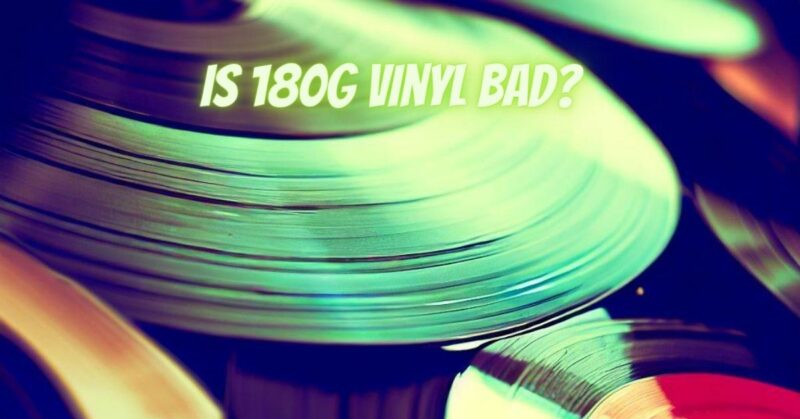The vinyl resurgence has brought with it a renewed interest in the various facets of vinyl records, including their weight. Among the discussions in the vinyl community, 180g vinyl has sparked some debate. While often associated with higher quality, there are misconceptions and doubts about its true impact on the vinyl listening experience. In this article, we dive into the topic of 180g vinyl, addressing common misconceptions and examining whether it’s truly “bad” or simply misunderstood.
Breaking Down the Misconceptions
Misconception 1: “180g Vinyl is Always Better”: One of the misconceptions is that 180g vinyl is inherently better than other weights. While it’s true that heavier vinyl might offer some advantages, such as increased stability during playback, it doesn’t guarantee better sound quality on its own.
Misconception 2: “180g Vinyl Guarantees Superior Sound Quality”: The weight of the vinyl is just one factor among many that contribute to sound quality. Mastering quality, pressing consistency, and playback equipment are equally, if not more, important factors.
Misconception 3: “180g Vinyl is Immune to Imperfections”: While the added weight might contribute to better pressing consistency, it doesn’t guarantee a flawless record. Imperfections can still occur during the pressing process, regardless of the vinyl weight.
Evaluating the Reality
- Sound Quality: The primary goal of any vinyl record is to deliver high-quality sound. The quality of the audio mastering and the pressing process has a more significant impact on sound quality than vinyl weight alone.
- Pressing Consistency: Some enthusiasts argue that 180g vinyl is pressed more consistently, reducing the chances of pressing defects. However, pressing quality depends on the manufacturer’s attention to detail, not just the vinyl weight.
- Playback Equipment: Your turntable, tonearm, cartridge, and stylus significantly impact the sound quality you experience. High-quality equipment can reveal the nuances of any vinyl record, regardless of its weight.
- Mastering Quality: A well-mastered record will sound good on any weight of vinyl. Conversely, a poorly mastered record might not sound optimal even on 180g vinyl.
Is 180g Vinyl Bad?
The notion that 180g vinyl is “bad” is a simplification. It’s neither inherently bad nor inherently superior. Rather, it’s a variation that offers some benefits but doesn’t automatically guarantee a superior listening experience. Just as with any vinyl record, the quality of the pressing, mastering, and playback equipment are key.
The debate over 180g vinyl is a reminder of the intricate considerations that come with vinyl record collecting. While 180g vinyl has potential advantages in terms of stability and pressing consistency, it’s not a one-size-fits-all solution for superior sound quality. The magic of vinyl lies in the unique connection to music, the tactile experience, and the inherent imperfections that make each record special. Whether it’s 180g or another weight, the joy of vinyl ultimately lies in the music it brings to life.


